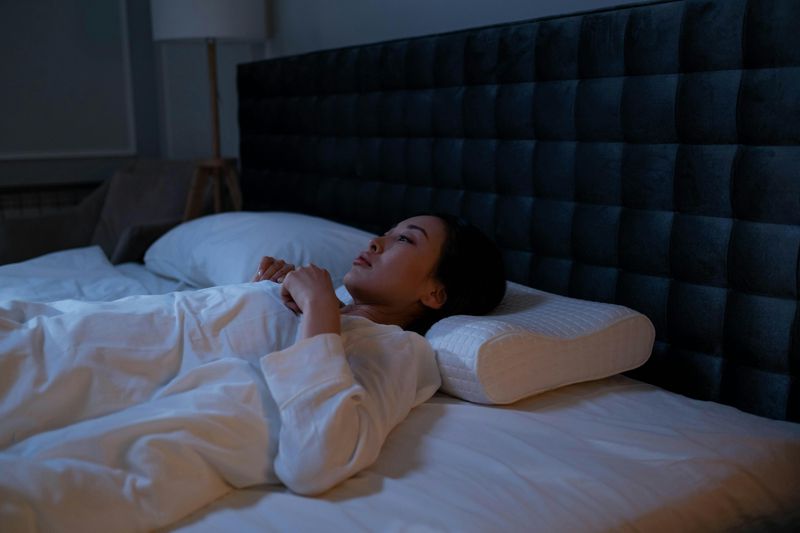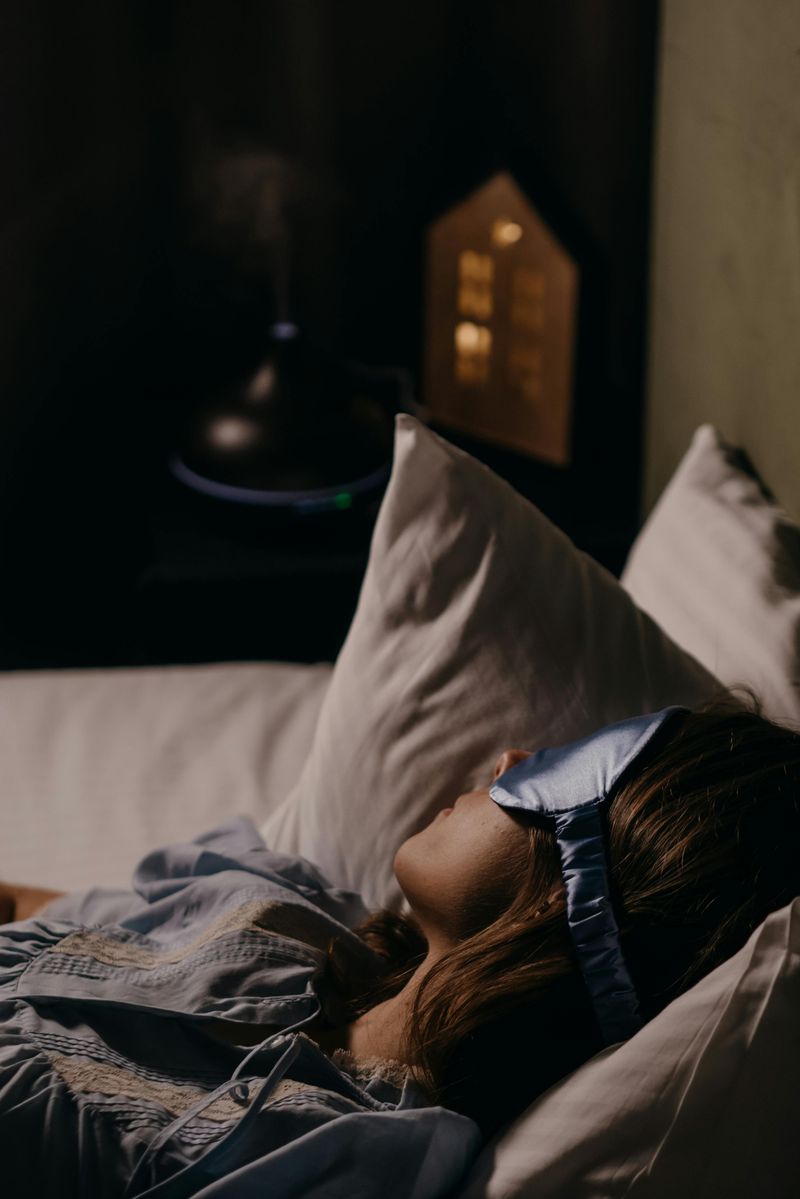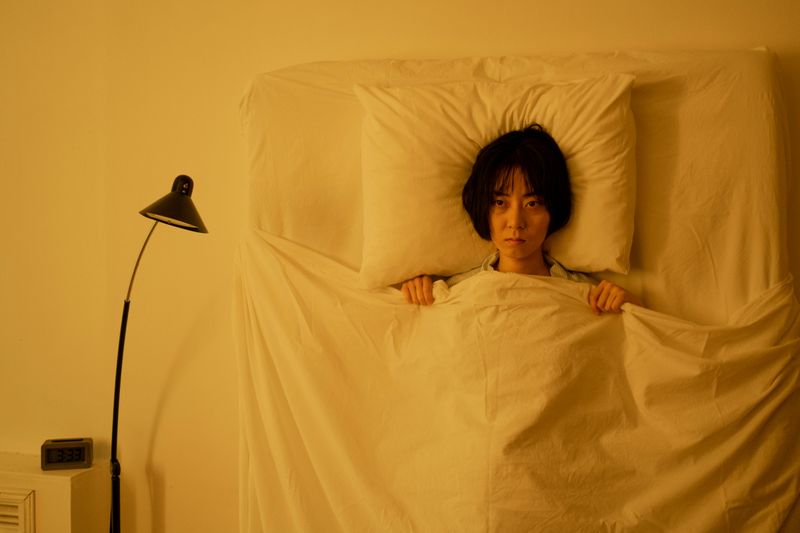15 Sneaky Reasons You’re Tired Even Though You’ve Had a Full 8 Hours of Sleep

Sleep is about more than just time. Quality, environment, health, and even lifestyle choices can make or break how refreshed you feel in the morning. Below are some of the sneaky, surprising, and sometimes frustrating reasons you may be dragging through your day despite doing everything “right” when it comes to sleep.
1. Poor Sleep Quality, Not Quantity

Many believe that clocking in 8 hours should leave them refreshed, but it’s the depth of sleep that truly matters. Constant tossing, frequent waking, or spending too much time in light sleep phases can leave you groggy the next day. While you may technically be asleep, your body isn’t getting the restorative rest it needs.
The hustle of daily life often invades our dreams, making it hard to reach those deep stages of sleep. Your mind might be racing even as your body tries to wind down, leading to a cycle of unrestful nights.
2. Sleep Apnea or Breathing Issues

The silent thief of restful sleep, sleep apnea, interrupts breathing multiple times during the night. Many sufferers are unaware of these interruptions, waking feeling tired even though they were in bed all night. It’s not just snoring; it’s a cessation of breath that can seriously affect sleep quality.
Breathing issues like apnea prevent the body from reaching deeper sleep stages, depriving it of essential restorative rest. People with undiagnosed conditions might think they’ve had a full night’s sleep but wake up feeling like they’ve been running a marathon.
3. Stress and Anxiety

Stress and anxiety are notorious sleep disruptors, with high cortisol levels acting as alarm bells in the night. Even if you manage to fall asleep, the quality of rest can be poor due to a constantly active mind. You might find yourself tossing and turning, unable to escape the worries of the day.
Mental unrest leads to fragmented sleep, making it hard to achieve deep, restorative cycles. The endless loop of anxious thoughts can turn your bed into a battleground, leaving you exhausted before the day even begins.
4. Poor Sleep Environment

Transform your sleep sanctuary into a restful haven, free from noise, light pollution, and discomfort. Even subtle disturbances can shatter the deep sleep cycles your body craves. Uncomfortable bedding or an inconsistent room temperature can add to the chaos, leaving you restless.
A well-curated sleep environment can mean the difference between waking up refreshed or groggy. Consider soundproofing, blackout curtains, or a more comfortable mattress to enhance sleep quality. It’s more than aesthetics; it’s about creating a peaceful retreat for your mind and body.
5. Irregular Sleep Schedule

Our bodies thrive on routine, yet erratic sleep schedules can confuse your internal clock. Going to bed and waking up at different times each day creates a disconnect with your circadian rhythm. This internal confusion can leave you feeling jet-lagged without crossing any time zones.
Consistency is key to aligning your biological clock for optimal rest. Even small variations in sleep timing can disrupt the delicate balance needed for restorative sleep. It’s not just about when you sleep, but maintaining regularity to awaken energized.
6. Too Much Screen Time Before Bed

In today’s digital age, screens have become bedtime companions, but their blue light can sabotage your sleep. The glow from phones, tablets, or computers delays melatonin production, tricking your brain into thinking it’s still daytime. This delay can make falling asleep an uphill battle.
Reducing screen time before bed could enhance your sleep quality significantly. Consider a tech-free routine an hour before sleep to help your body prepare for rest. It’s a small change with potentially big benefits, turning restless nights into peaceful slumbers.
7. Hidden Health Conditions

Could your persistent tiredness signify an underlying health issue? Thyroid disorders or diabetes often lurk unnoticed, quietly affecting sleep quality. Many dismiss symptoms like fatigue, assuming they’re unrelated to a specific condition. Yet, these health concerns can disrupt rest, leaving you weary.
Similarly, depression and chronic fatigue syndrome can subtly drain energy. These conditions don’t just affect mood; they also impact physical well-being. If exhaustion is chronic, consulting a healthcare provider is crucial.
Getting to the root cause can restore vitality, making each night of rest truly refreshing.
8. Poor Diet and Dehydration

Late-night feasting might be sabotaging your sleep. Heavy meals close to bedtime make your body work hard at digestion, interrupting rest. Additionally, sugar and caffeine can keep you wired, reducing sleep quality. It’s easy to underestimate these dietary impacts.
Alcohol, too, is deceptive. While it might help you fall asleep initially, it disrupts deep sleep phases. Hydration matters as well. Dehydration can lead to fatigue, causing grogginess even after sufficient sleep.
So, paying attention to what and when you eat and drink is key for rejuvenating rest.
9. Lack of Physical Activity

Feeling lethargic despite a full night’s sleep? Sedentary lifestyles might be the culprit. Lack of physical activity reduces your body’s natural sleep drive, leading to restless nights.
Physical activity is essential for maintaining a healthy sleep cycle. Regular exercise tires the body, making it easier to fall into a deep, restorative sleep. Without it, your sleep can feel light and unrefreshing.
Breaking the cycle of inactivity can be a game-changer. Even a simple daily walk can significantly enhance your sleep quality and energy levels.
10. Overtraining or Evening Workouts

Pushing your body to the limit might seem beneficial, but it can backfire. Overtraining, particularly in the evening, can spike adrenaline levels, disrupting your ability to fall asleep.
Exercise is crucial, but timing is everything. Evening workouts can leave you feeling wired rather than tired, preventing the relaxation needed for recovery sleep. This disruption may lead to feeling drained despite clocking in ample sleep hours.
Balancing intensity and timing of workouts can provide energy and improve sleep efficiency, striking the right harmony for rest.
11. Not Enough Natural Light Exposure

Could dim indoor lighting be robbing you of sleep quality? Natural light exposure is pivotal in regulating your sleep-wake cycles. Insufficient daylight can confuse your body clock, leading to less effective sleep.
Spending most of your day indoors under artificial light might satisfy work needs but not your body’s natural rhythm. Proper sunlight exposure synchronizes your internal clock, making sleep more restorative.
Embracing natural light through outdoor activities or simply a walk during lunch can remarkably enhance sleep quality, making night-time rest more fulfilling.
12. Vitamin or Mineral Deficiencies

Could your diet be missing key nutrients essential for rest? Low levels of vitamins like D, magnesium, or iron are often overlooked culprits of fatigue despite adequate sleep.
These deficiencies can disrupt energy production and the sleep cycle, leading to persistent tiredness. Unlike obvious indicators like hunger, nutrient shortfalls subtly affect energy levels, going unnoticed.
Investing in a balanced diet rich in essential vitamins and minerals can surprisingly revitalize your sleep quality, turning each night into a rejuvenating experience.
13. Overuse of Sleep Aids

Relying heavily on sleep aids might be counterproductive. While melatonin, alcohol, or medications can help induce sleep, they might interfere with natural sleep architecture.
These aids can lead to a reduction in deep sleep phases, which are vital for feeling rested. Over time, dependence can develop, making natural sleep elusive.
Understanding the limitations and proper use of sleep aids can help restore a more natural sleep pattern, ensuring you wake refreshed and ready to tackle the day.
14. Mental Overload and Overthinking

Ever feel like your mind just won’t quiet down? Mental overload and incessant overthinking can prevent you from reaching deep sleep stages.
Even when asleep, an overactive mind may cause light, non-restorative sleep. This can result in waking up tired, as if you never slept.
Techniques like mindfulness or writing in a journal before bed can offload thoughts, fostering a peaceful transition to slumber and improving overall restfulness.
15. Sleep Disorders Beyond Insomnia

Sleep isn’t just about clocking hours; it’s about the quality of those hours. Disorders like Restless Leg Syndrome or circadian rhythm disruptions often go unrecognized.
These conditions can severely affect how rested you feel, as they disturb the continuity of sleep. Despite sleeping for eight hours, you might still feel fatigued and drained.
Recognizing and addressing these disorders through professional guidance can significantly enhance your sleep quality, making each night productive for body and mind recovery.

Comments
Loading…